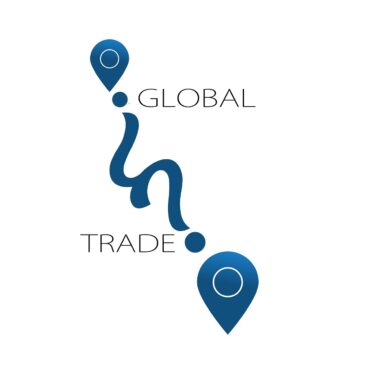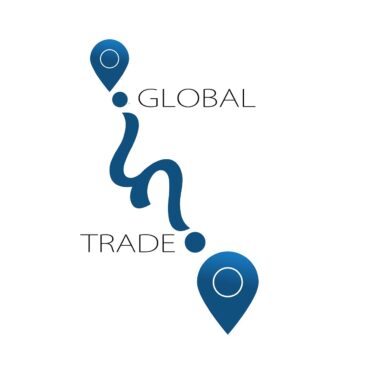Strategies for Enhancing Trade Capacity in Developing Countries
Developing countries face numerous challenges when engaging in international trade. Enhancing trade capacity is vital for these nations to bolster economic growth. A comprehensive strategy starts with improving infrastructure, as it directly affects the efficiency of trading processes. This includes developing better transportation networks, such as roads and ports, to reduce logistics costs. Investment in digital infrastructure is equally critical, enabling faster and more reliable communication for trade transactions. Furthermore, providing access to reliable energy sources enhances production capabilities, facilitating smoother supply chain operations. Training programs should also be implemented to equip the workforce with necessary skills in trade management and negotiation. Creating access to relevant trade data, market analysis, and research can empower local businesses to make informed decisions. Additionally, reducing trade barriers, such as tariffs and regulations, will make it easier for these countries to integrate into global markets. Finally, fostering partnerships between governments, private sector entities, and NGOs can lead to resource pooling and knowledge sharing, ultimately enhancing trade capacity significantly and sustainably, thereby promoting long-term economic development.
Capacity-building programs tailored to the specific needs of developing countries are essential for enhancing trade efficiency. Engaging with local stakeholders ensures that the selected strategies align with the actual challenges they face. This often involves direct consultations with businesses, trade associations, and civil society groups to identify strengths and weaknesses in current trade practices. To facilitate effective capacity building, regional trade agreements can play a pivotal role. These agreements often provide a framework for collaboration, enabling countries to work together to address common challenges. Governments should promote initiatives that support small and medium-sized enterprises (SMEs) to flourish in the export market. Providing these businesses with access to financing, information, and training helps foster a more vibrant trade ecosystem. Furthermore, trade policy reforms are critical to enhance competitiveness and compliance. This can include simplifying customs procedures and ensuring that regulations don’t disproportionately burden smaller firms. Leveraging technology, such as blockchain for record-keeping and transaction transparency, can enhance trust and streamline processes. Altogether, these measures empower developing countries to better navigate the complexities of international trade.
Strengthening Regional Cooperation
Regional cooperation is crucial in enhancing trade capacity among developing nations. By collaborating on joint initiatives, countries can reduce costs associated with trade barriers and other inefficiencies. These regional partnerships often lead to the formation of trade blocs that facilitate easier access to member markets. Additionally, such cooperation can enhance economies of scale, making local producers more competitive internationally. Shared infrastructure projects, such as cross-border transport links and logistics hubs, can significantly reduce transportation costs. Furthermore, harmonizing standards and regulations across borders can facilitate smoother trade processes and reduce long delays at customs. Efforts should also be made to enhance regional supply chains, promoting intra-regional trade and investment. By building a more interconnected marketplace, countries can pool resources and leverage shared expertise to bolster trade capacity. Capacity-building initiatives, such as joint training programs and knowledge exchange workshops, can strengthen institutional capabilities and foster an environment conducive to trade. Prioritizing regional cooperation ensures that developing countries are better positioned to engage with global markets effectively, ultimately contributing to their economic prosperity and resilience.
Enhancing trade capacity also involves improving legal frameworks to create a more favorable business environment for international trade. Trade legislation should aim at reducing bureaucratic red tape, thus improving administrative efficiency for businesses. By creating clearer and more predictable legal structures, governments can enhance investor confidence and encourage foreign direct investment (FDI). Additionally, engaging in legal reforms that protect intellectual property rights is vital. It can incentivize innovation and ensure that local businesses can compete effectively. Establishing effective dispute resolution mechanisms also plays a key role, as they provide businesses with the security they need to enter new markets. Streamlining processes for trade facilitation services, such as customs clearance and inspection, significantly enhances the overall experience of businesses. Moreover, public-private partnerships (PPPs) can be harnessed to finance infrastructure projects necessary for trade capacity enhancement. Finally, promoting awareness amongst local businesses about existing trade agreements, benefits of compliance, and market opportunities can lead to increased participation in international markets. These measures collectively contribute to building a robust legal environment that supports sustainable trade growth.
Promoting Sustainable Economic Practices
Integrating sustainability into trade capacity building is increasingly critical in today’s global market. Developing countries must align their trade practices with sustainable economic principles to achieve long-term growth. Emphasizing sustainable sourcing and production methods can enhance product quality and market appeal, thereby increasing competitiveness. The focus on environmentally friendly trade practices not only helps in pursuing local regulations but also meets rising international demand for sustainable products. Additionally, investing in renewable energy sources for production processes can reduce dependency on fossil fuels, lowering operational costs. Education and awareness about sustainability practices across local industries can lead to innovative solutions that benefit both economy and environment. Trade capacity building should also consider social sustainability by ensuring fair labor practices and promoting gender equality within workforces. Supporting programs that prioritize women and marginalized communities can lead to a more inclusive economy. Furthermore, collaboration with international organizations to adopt best practices can help shape policies that support sustainable trade. By prioritizing sustainability, developing countries position themselves favorably within the global market while contributing to social and environmental well-being.
Access to finance is a paramount factor in enhancing trade capacity in developing nations. Many small and medium-sized enterprises (SMEs) face challenges accessing the necessary funding to scale operations and engage in international trade. Financial institutions must create tailored products that cater to the unique needs of these businesses, facilitating capital acquisition. Enhancing financial literacy among business owners can also empower them to make informed financial decisions. Governments can consider providing guarantees or incentives for financial institutions to encourage lending to SMEs involved in trade. Additionally, exploring alternative financing options, such as trade finance solutions and microfinance institutions, can unlock resources for smaller enterprises. Collaboration with international donor organizations can help increase funding flows for capacity building initiatives. Providing workshops and training focused on financial management and trade financing will equip local businesses to pursue opportunities effectively. Finally, fostering a culture of innovation can encourage businesses to explore new markets and financing avenues. Developing a robust financial ecosystem conducive to trade growth is essential in overcoming barriers and enhancing overall trade capacity.
Monitoring and Evaluation
Monitoring and evaluation processes play a critical role in the effectiveness of trade capacity building initiatives. Developing countries need to establish robust frameworks to track progress and assess the outcomes of various strategies implemented. This involves collecting data on trade performance, identifying key indicators of success, and establishing baseline measurements to evaluate growth effectively. Utilizing technology can facilitate easier data collection and processing, allowing stakeholders to gain timely insights. Stakeholders should also engage in participatory evaluation approaches that involve local businesses and communities in the assessment process. Feedback loops between policymakers and business practitioners can lead to necessary adjustments in capacity-building strategies. Regular reporting and transparent communication remain essential throughout this process to maintain stakeholder accountability. Furthermore, sharing best practices and lessons learned with other regions can enhance knowledge exchange on effective trade capacity initiatives. Incorporating monitoring and evaluation into trade capacity building ensures that resources are allocated efficiently and that adaptive strategies are adopted to respond to ever-changing global trade dynamics. Collectively, these efforts contribute to a sustainable and effective enhancement of trade capacity for developing countries.
In conclusion, a multidimensional approach toward enhancing trade capacity in developing countries is crucial for fostering sustainable economic growth. By prioritizing infrastructure development, regional cooperation, legal reforms, and sustainable practices, nations can better position themselves in the global market. Addressing financing challenges and leveraging technology plays a significant role in amplifying trade opportunities. Implementing effective monitoring and evaluation frameworks ensures that these initiatives remain relevant and impactful. Collaborative efforts among governments, private sectors, and international organizations can empower local economies to thrive amid the complexities of international trade. Continuous adaptation to changing market trends and maintaining awareness of global economic shifts will further enhance resilience. Ultimately, enhancing trade capacity is not merely about increasing export levels; it is about ensuring the long-term prosperity of developing nations through equitable and sustainable trade practices. With the right strategy and commitment, developing countries can harness their potential and carve a robust niche in the global marketplace.








